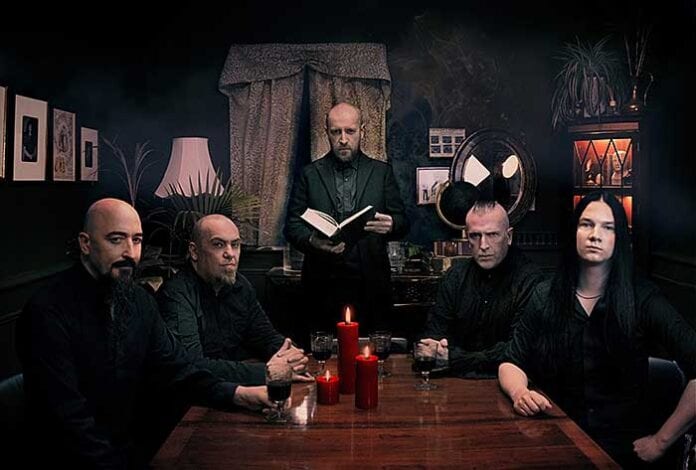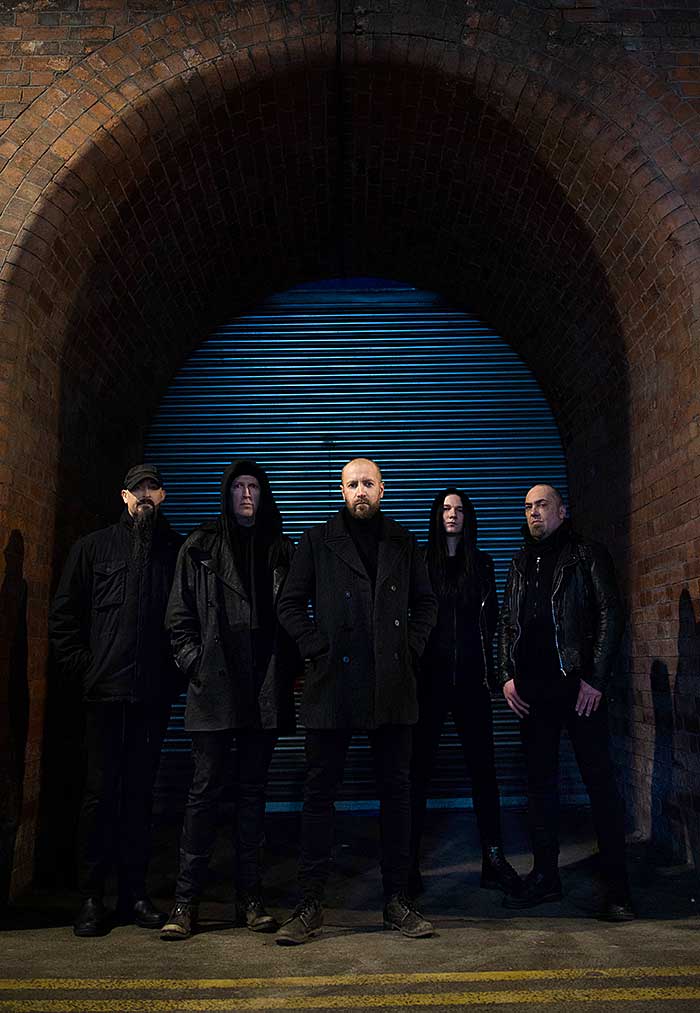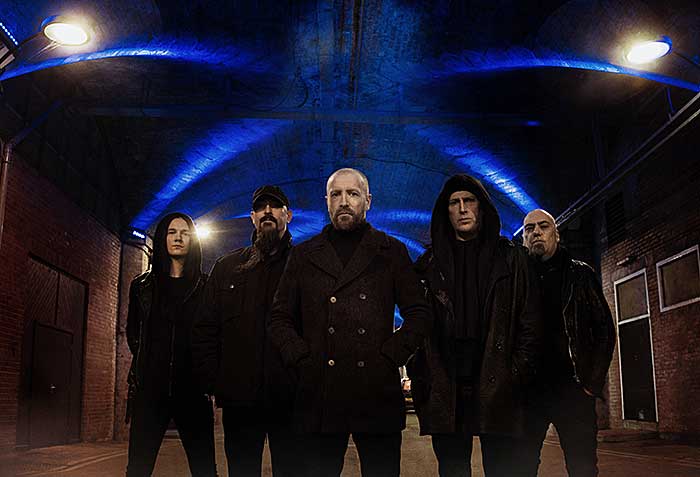
INTERVIEW WITH NICK HOLMES BY GEORGE PACHECO
PHOTOGRAPHS BY ANNE C. SWALLOW
“We’ve never pandered to what people want, trends, or fashion. We write songs with the same principle we had before we even had any fans—we please ourselves first. If we like something, then there’s a possibility other like-minded people will.”
These are the words Paradise Lost frontman Nick Holmes has when I point out his band’s rich history of taking chances and not catering to what metal fans sometimes want or expect from their favorite artists. After all, Paradise Lost has seen their 30 plus year career establish the band as death/doom pioneers, gothic metal stalwarts, and even a brief moment of mainstream flirtation with albums like Host or One Second. At the same time, however, more recent times have seen The Lost embrace more heavy ideas than ever before, utilizing the past as a means to move forward.

“It’s difficult to say,” begins Nick. “For me, I certainly remember thinking In Requiem was an attempt to get back to a heavier sound, but things move along very slowly. It wasn’t an overnight decision.” He continues, “Our albums seem to move along stylistically in twos or threes, not by choice, it’s just how it is. I guess things change when you use different producers, but we approach each album in a similar way and have done so for a very long time.”
“WE ARE STILL VERY PASSIONATE ABOUT SONGWRITING AND THE SONG CREATION PROCESS.”
Bands certainly can’t please everybody, and there are probably just as many folks who would like the band to embrace more of the modern gothic rock style as there are who are thrilled with Paradise Lost recovering its roots. Obsidian is the band’s 16th full-length, believe it or not, and perhaps achieves the most successful balance of this heavy/melodic dynamic, bringing The Sisters of Mercy influences that have always been there and injecting them a bit more blatantly than on their previous platter, 2017’s dark and brooding Medusa.

“We tend not to analyze it too much,” admits Holmes. “The gothic element was always there, but the heavier the song, sometimes it gets lost. With a song that’s stripped down more, it’s easier to inject the more gothic overtones, such as jangly guitars. We are still very passionate about songwriting and the song creation process. It’s something that has never died, and we still find it exciting to see things come together. I like the more old school goth elements of this album very much, for sure.”
Given that the band has covered so much musical ground, does nailing down a set list with a proper flow prove to be more challenging than it may seem on the outside? After all, a song like “Say Just Words” these days can be a bit jarring when placed against both the heavier Obsidian jams, as well as the death/doom epics of the past. “There are many songs we have played many times,” admits Nick. “So, some really are tried and tested. Some songs just don’t work live regardless of how popular album songs they are. It doesn’t matter which you choose, someone will always want something you aren’t playing that evening. That’s par for the course.”
What’s also par for the course is that the Paradise Lost sound just seems to hinge upon Holmes’ deep, brooding vocals and that guitar tone from Gregor Mackintosh. Sometimes, the more things change, the more they stay the same. Obsidian still swings from this approach, and it’s proven to work time and time again for Paradise Lost as one of the most reliable forces in dark, emotionally heavy metal. “In the old days, we used to meet in a rehearsal space and record stuff on an old ghetto blaster cassette player before moving onto a Fostex 4 track recorder and a Tascam DA88, and then it all went computerized. We use DAWS, music software, and file sharing for writing/composing music now and have done since the late 90s.”
“IT’S JUST ABOUT ESCAPISM. THERE’S NOTHING SINISTER ABOUT IT. METAL FANS ARE THE MOST CARING, FRIENDLY, AND RELIABLE PEOPLE I’VE EVER MET.”
Then there’s the nature of melancholy in music, that inimitable misery that was turned into magic by the “Peaceville Three” of Paradise Lost, Anathema, and My Dying Bride. Holmes and Co. are certainly not a miserable lot to interview, nor are they statues on stage during their excellent live shows. Does Nick think it takes a certain sort of person to understand how bands like Paradise Lost can write and enjoy dark music, while still go about their lives as normal(ish) humans?
He muses, “It’s just about what you’re into. I love horror movies, gothic art, gothic literature, etc. Metal music goes hand in hand with all of that. It’s just about escapism. There’s nothing sinister about it. Metal fans are the most caring, friendly, and reliable people I’ve ever met. It’s the people who don’t have hobbies, don’t like music, and have seemingly zero interest in anything that you have to worry about, in my opinion.”




















